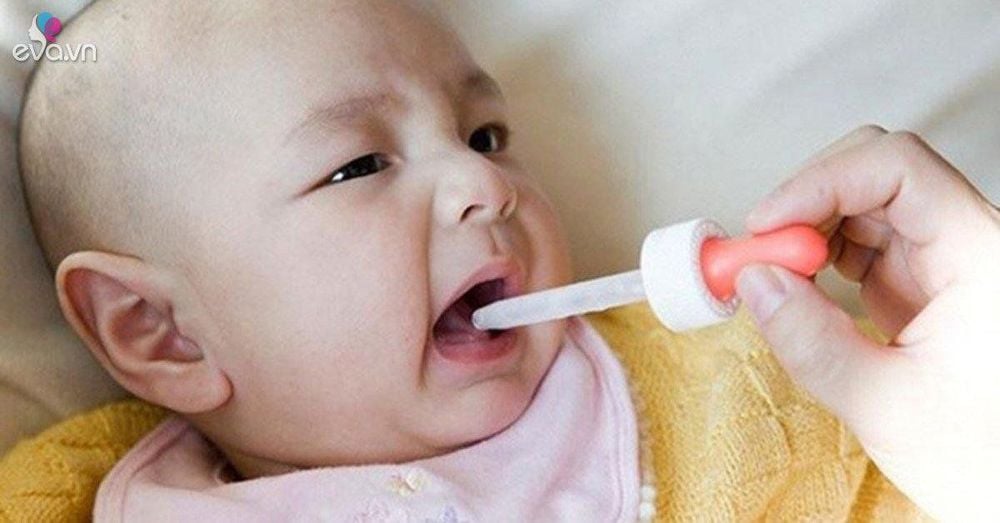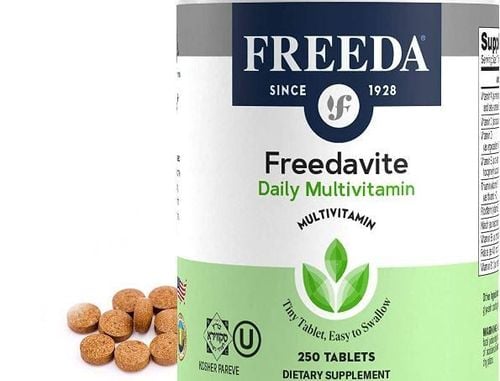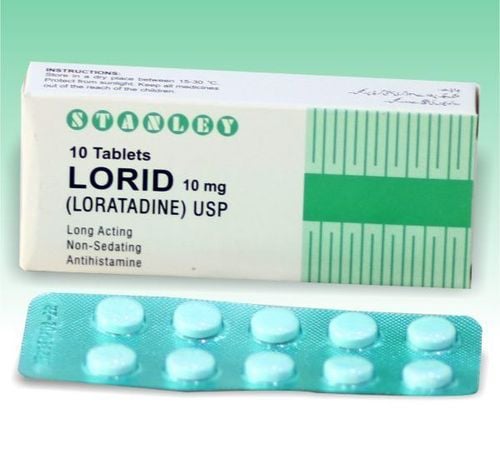This is an automatically translated article.
Vitamins are important nutritional components for the development of children. Vitamin deficiency can lead to frequent minor illnesses, seriously affecting health. Therefore, vitamin supplementation for children also needs to be properly cared for by parents.1. Vitamin supplement for children
Do healthy children need vitamins? Multivitamins are not necessary for most healthy, developing children. Food is always considered the best source of nutrients. Regular meals and snacks can provide all the nutrients most preschoolers need.While many young children are picky eaters, that does not mean they are undernourished. Many common foods can have ingredients including breakfast cereals, milk, and orange juice that are fortified with important nutrients, such as B vitamins, vitamin D, calcium and iron. So kids may be getting more vitamins and minerals than you think.
Furthermore, multivitamins are not without risks. Vitamins and minerals can be toxic. Also, some vitamins and minerals can interact with medications your child may be taking.
You can talk to your doctor to have appropriate indications in whether to give vitamin supplements to your child or not. Some multivitamins can be helpful for a child's development if they:
Have a physical delay (failure to grow) Have certain chronic diseases or food-related allergies Yes a restrictive diet, such as a strict vegetarian or vegan diet If your doctor recommends a multivitamin, choose one that is designed for your child's age group and does not provide more than 100% daily value of vitamins and minerals. Also, keep multivitamins out of the reach of children and make it clear they are not candy.

Trẻ khỏe mạnh có cần vitamin bổ sung thêm không là thắc mắc của nhiều cha mẹ
2. Vitamin supplement for children
Vitamins belong to the group of nutrients that need to be supplemented daily when the body is in the process of developing and functioning normally. However, the amount supplied with vitamins is quite small, maybe even very small, but this small amount is essential for life as well as for humans. Therefore, the use of vitamin supplements for children is also quite important.Vitamin ingredients often supplemented for children include 4 types of fat-soluble vitamins such as: vitamin A, vitamin D, vitamin E, vitamin K and nine water-soluble vitamins such as vitamin C, vitamin B group, .... Minerals are also supplemented with inorganic minerals daily. Similar to vitamins, daily mineral content is also supplemented through food. Particularly for normal healthy children, in the development stage, supplementation and provision of micronutrients including vitamins and minerals plays an important role.
If the child is given a reasonable and balanced diet, the child's nutritional status is normal and may not require vitamin or mineral supplementation. However, if the nutritional status of the child is suspected and the child's diet does not seem to provide adequate macro and micronutrients, even if the child is healthy, you still need vitamin and mineral supplements. . Because, vitamins inherent in food will be easily lost during harvesting, processing and preservation. Or it may be due to an inadequate diet with poor quality of food such as: wilted vegetables, bruised fruits, ... or poor food preservation, such as when cooking food. but overcooking causes water-soluble vitamins to evaporate and disappear... For these reasons, a doctor may still advise healthy children to take vitamin supplements, and still have to make sure they're correct. amount. As for children with abnormal nutritional status, they will be advised to eat less but need to supplement with vitamins, because a fat-restricted diet will have factors that affect the absorption of fat-soluble vitamins such as: : Vitamin A, vitamin D, vitamin K, vitamin E...
Particularly for infants who are exclusively breastfed without using any other liquid, vitamin supplements should also be given to the child, by passing the supplementation of vitamins for mothers in daily meals. Thus, when breastfed babies will still be provided with enough vitamin content according to the recommended needs.
You should not arbitrarily add vitamins directly to the child, because when the child has an excess of vitamins and minerals, it can affect the development and health of the child.
3. Some notes when giving vitamins to children
When supplementing with vitamins, it is recommended to use vitamin and mineral supplements that cannot replace food, so you still have to eat a full, reasonable and balanced food group.In the vitamin supplements for children, it is necessary not to add excess vitamin A and vitamin D. Because when the content of these two vitamins is in excess, it can accumulate in the body and at the same time cause poisoning for children. As for pregnant women and children, especially infants, the overdose of vitamin A and vitamin D is very dangerous. If there is an excess of vitamin A, it can cause teratogenic conditions in the child, then increase the pressure of the brain to the fontanelle, atrophy of the optic nerve. Using an overdose of vitamin D can cause calcification of the placenta, while young can lead to anorexia, fatigue, vomiting, early cartilage ossification.... Therefore, using these two vitamins should be doctor's instructions.

Bổ sung vitamin cho trẻ lưu ý không bổ sung dư thừa vitamin A và D
4. Some foods rich in vitamins
Foods that help supplement vitamins for children can be mentioned as liver. Liver which includes beef liver, animal liver in general has a rich content of vitamin A. Similar to humans, animals also store vitamin A in the liver, when using a serving of 85 grams of beef liver will provide about 6582 micrograms of vitamin A. Besides, animal liver belongs to the group of organ meats that The ingredients not only contain a lot of protein, but also have other nutritional ingredients including: copper, vitamins, vitamin B2, vitamin B12, iron, folate, choline which are very good for the bodyFish oil: fish liver is also a good source of supply. great vitamin A content for the body. With 1 tablespoon of cod liver, it can provide about 4080 micrograms of vitamin A. This fish oil is also considered the richest source of omega-3 fatty acids, which help the body fight inflammation, protect the heart and prevent other diseases. illness such as depression. In addition, fish liver is also a rich source of vitamin D. 1 tablespoon contains 340% of the recommended daily intake.
Herring with 85 grams of fish can provide up to 210 micrograms of vitamin A, protein, vitamin D. Herring is also considered a great choice to provide omega-3 acids good for the brain and heart. So experts recommend consuming 2 servings of fatty fish per week.
In short, vitamin supplementation for children is very important and necessary, but parents should only supplement with the advice of a professional doctor. Arbitrarily supplementing vitamins for children has many potential risks.
For children to be healthy and develop well, it is necessary to have a nutritious diet in terms of quantity and quality balance. If children are not provided with adequate and balanced nutrients, it will lead to diseases of excess or lack of nutrients, which adversely affect the comprehensive development of children in terms of physical, mental and motor skills.
Children who do not eat properly are at risk of micro-mineral deficiency causing anorexia, growth retardation, malabsorption,... If they notice the above signs, parents should supplement their children with products. The supplement contains lysine, essential micro-minerals and vitamins such as zinc, chromium, selenium, and B vitamins to help fully meet the nutritional needs of children. At the same time, these essential vitamins also support digestion, enhance nutrient absorption, help improve anorexia, and help children eat well.
Parents can learn more:
Signs of zinc deficiency in children
Micronutrient deficiency and failure to gain weight in children
Please regularly visit Vinmec.com website and update useful information to take care of your child. Take care of the baby and the whole family.
Reference source: mayoclinic.org













